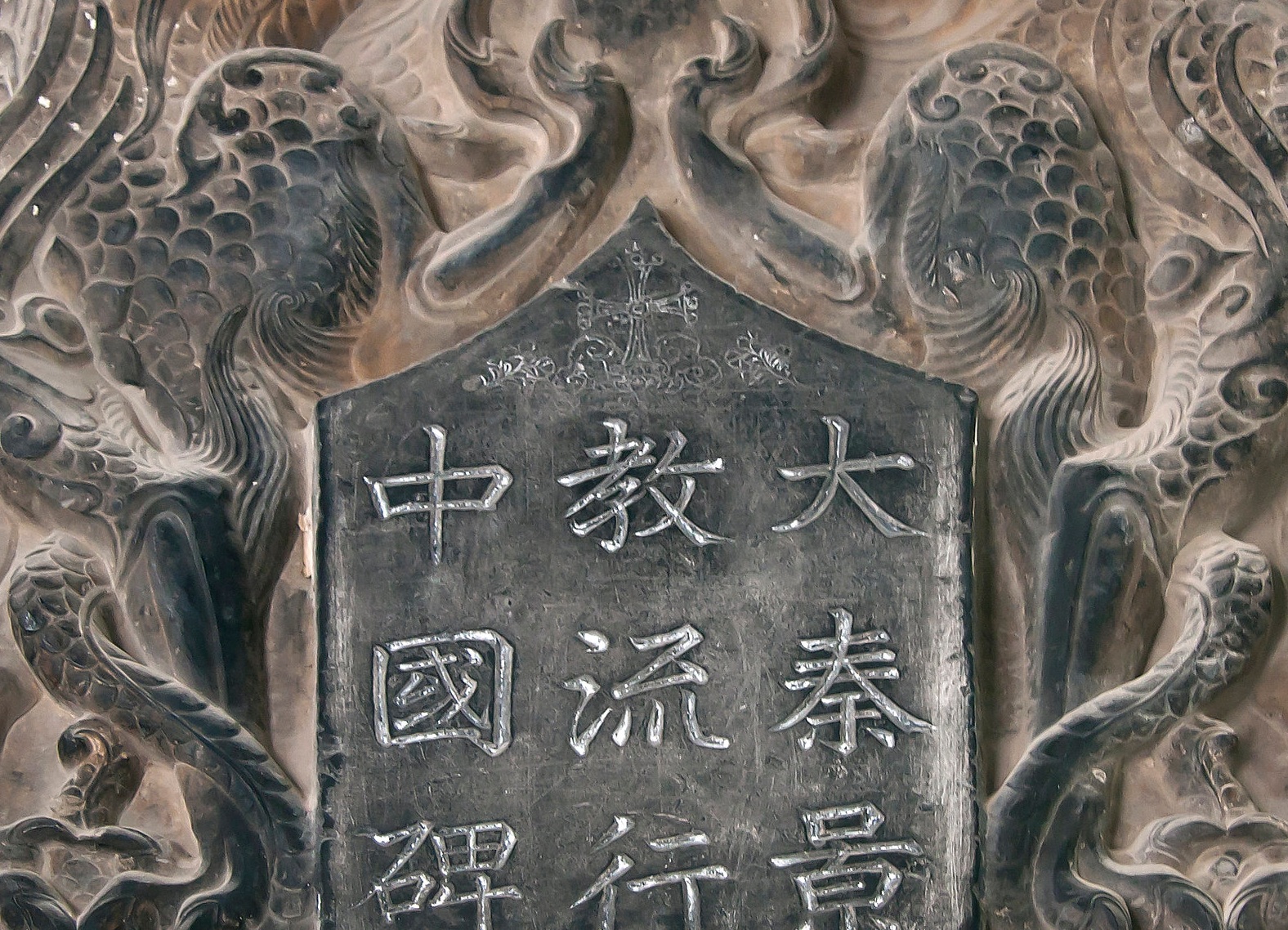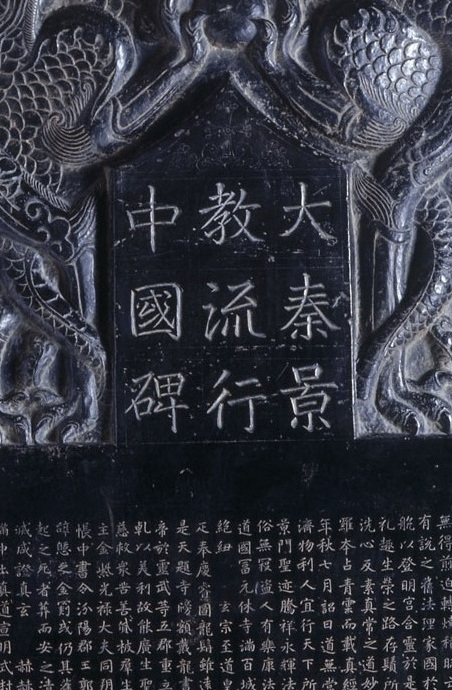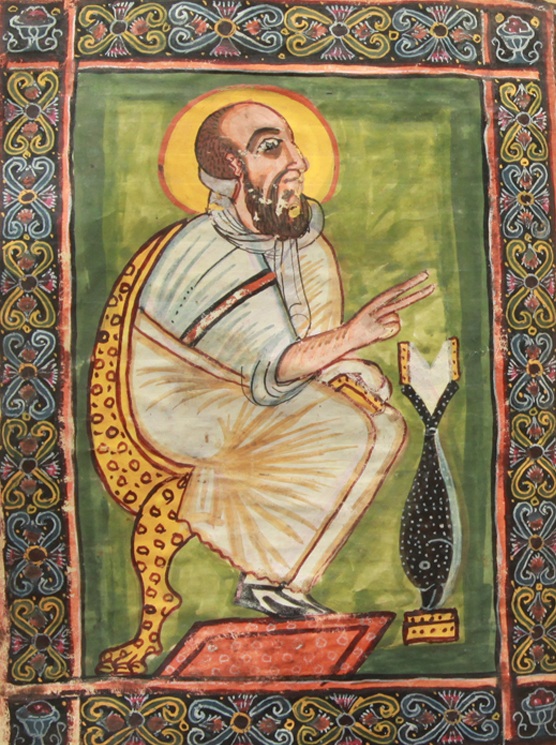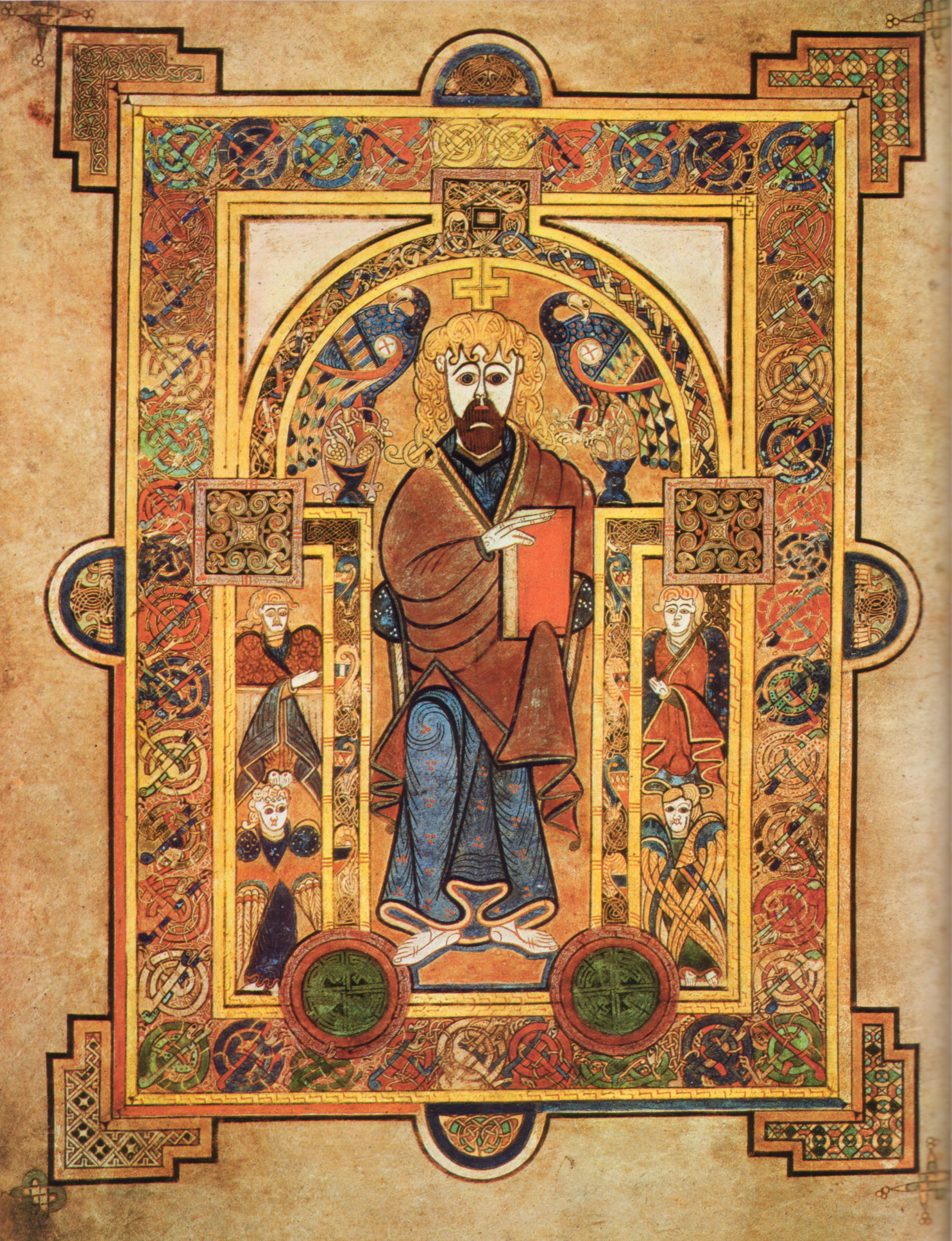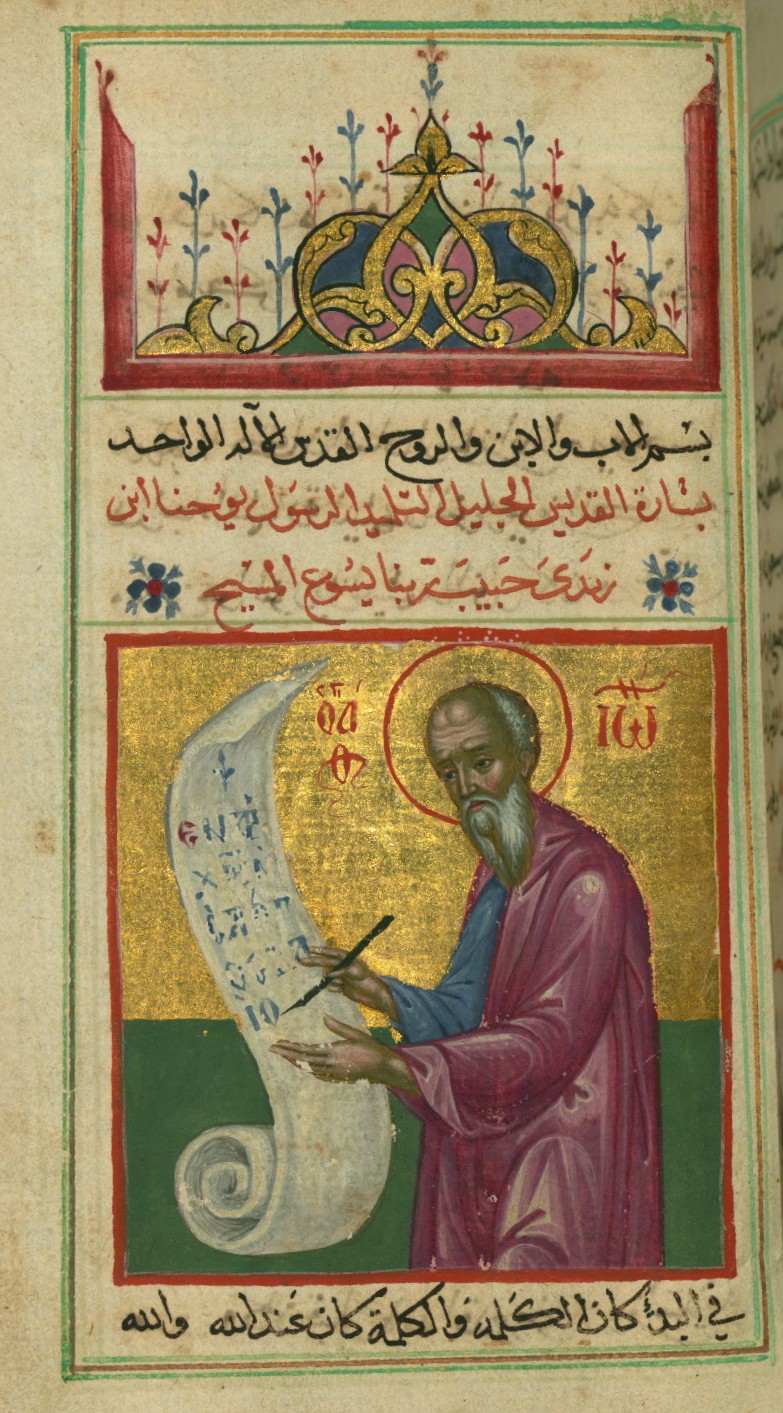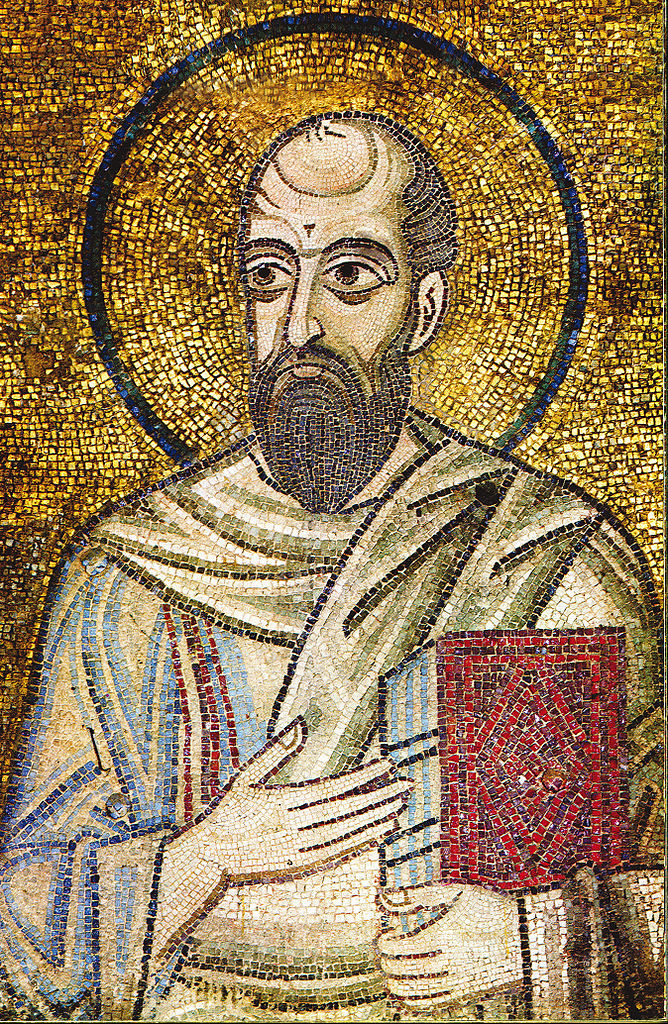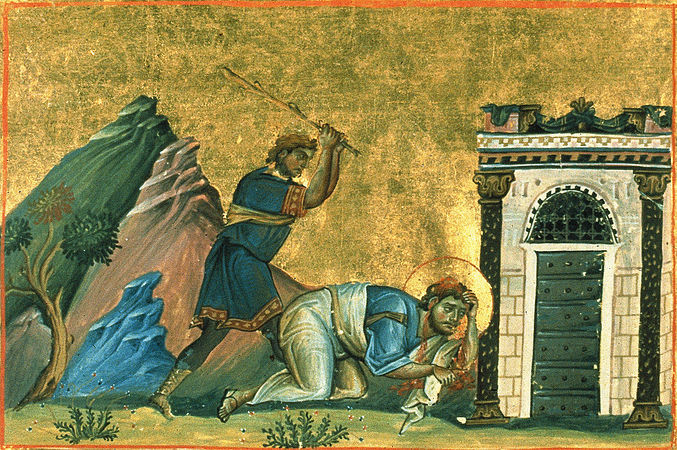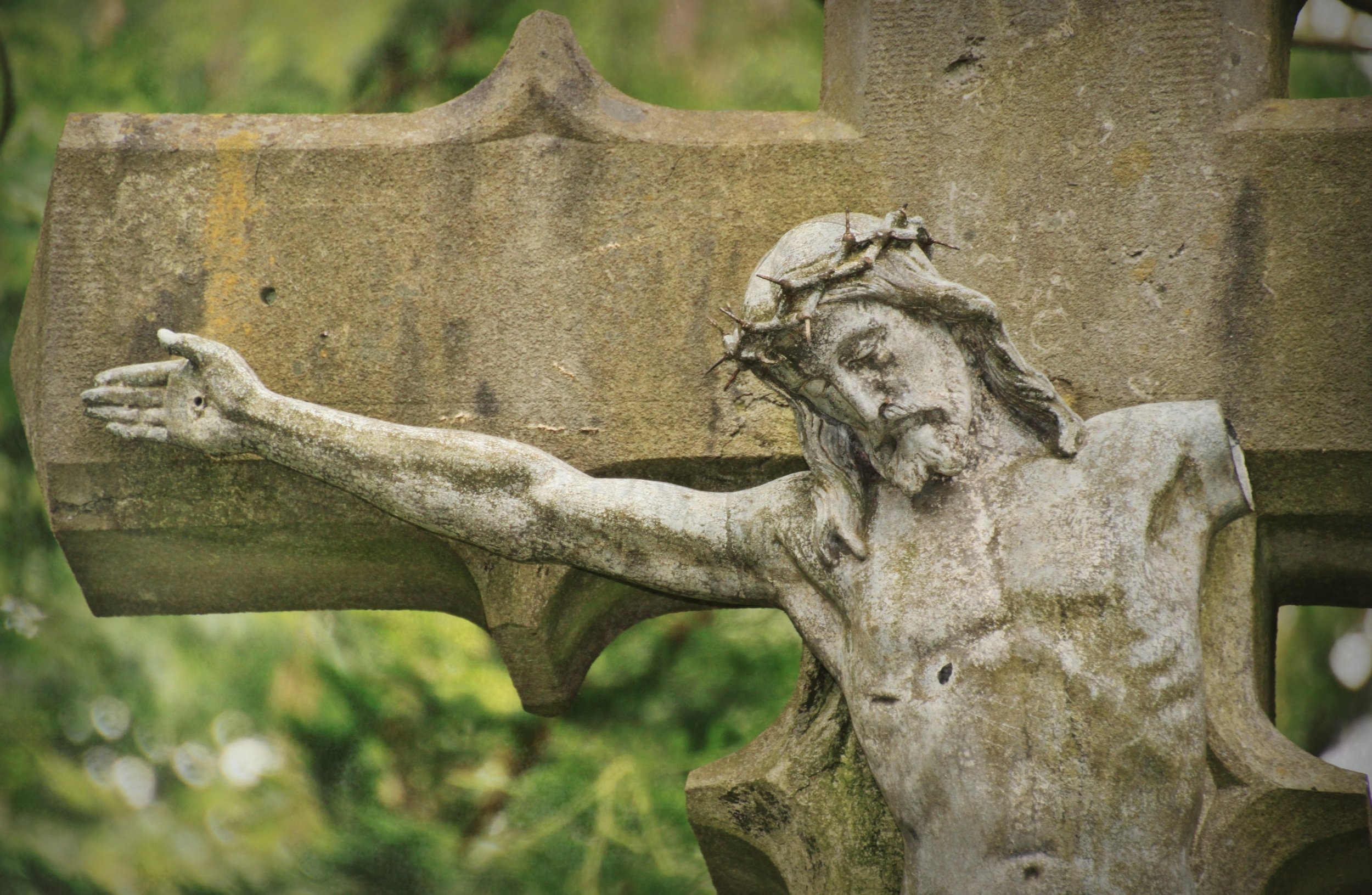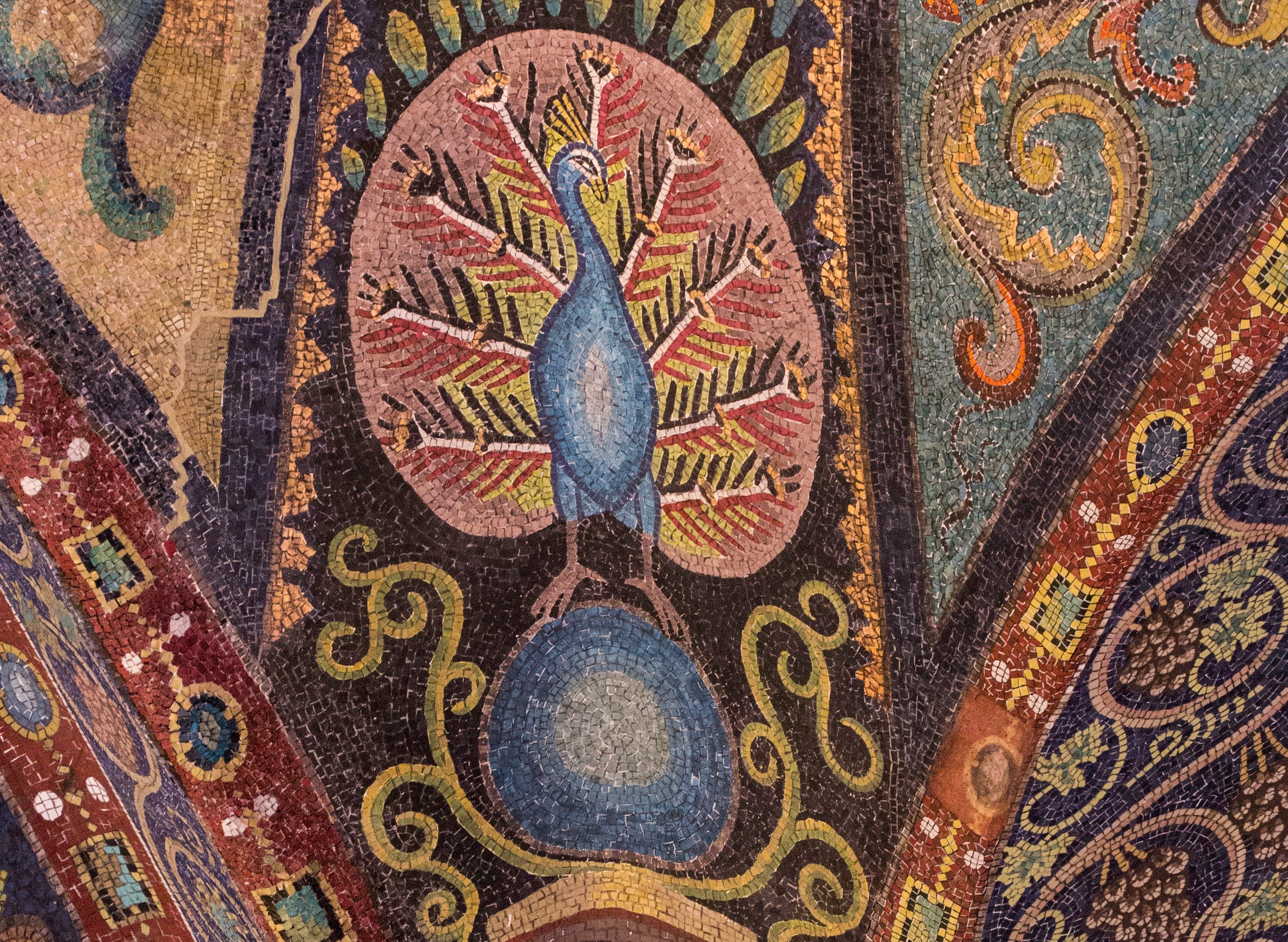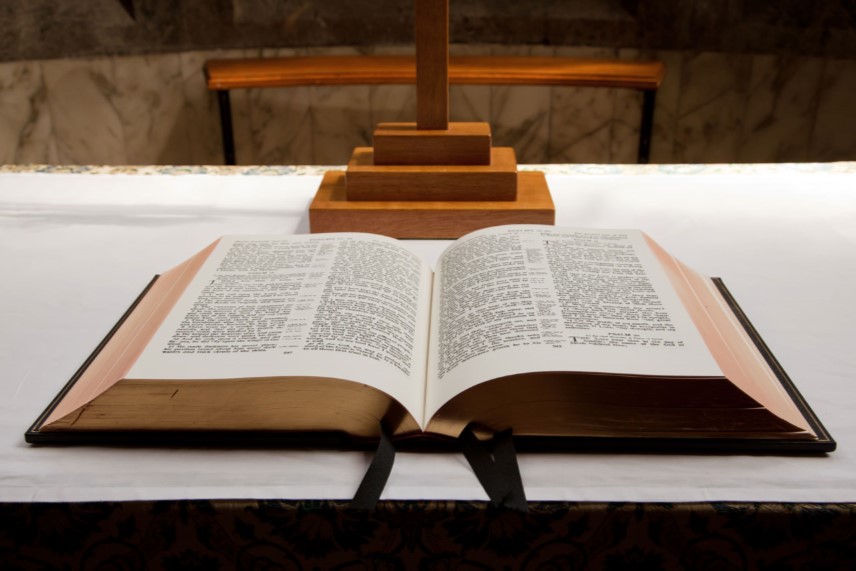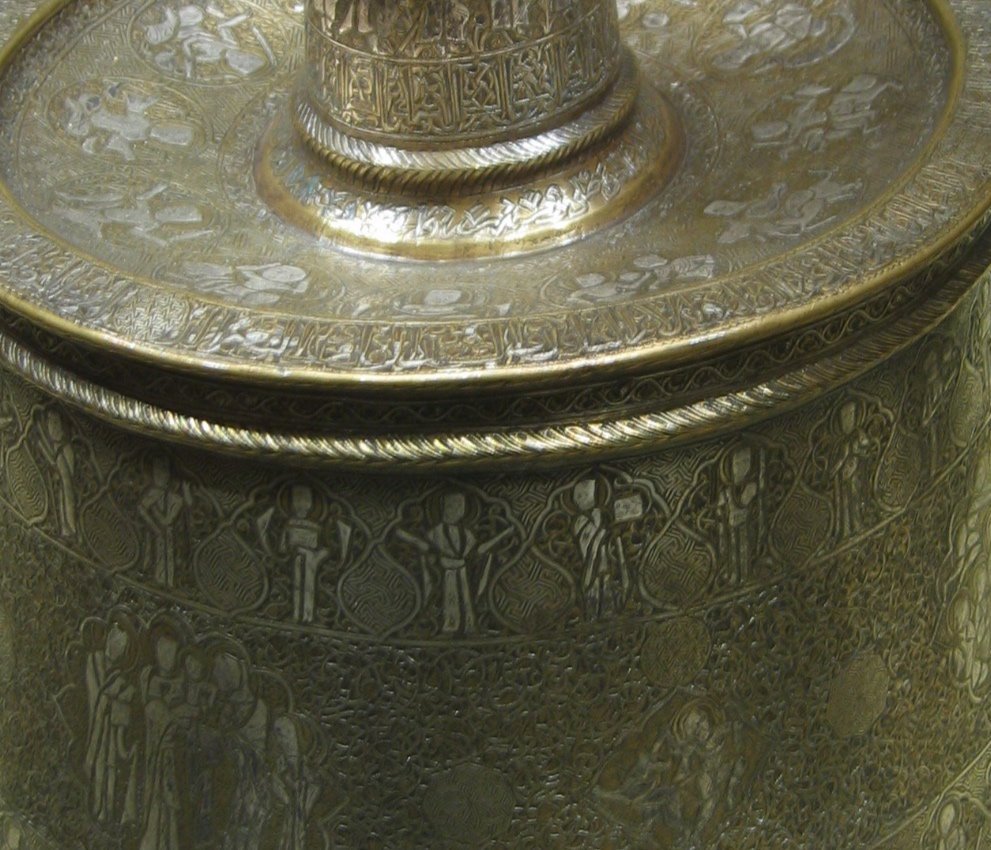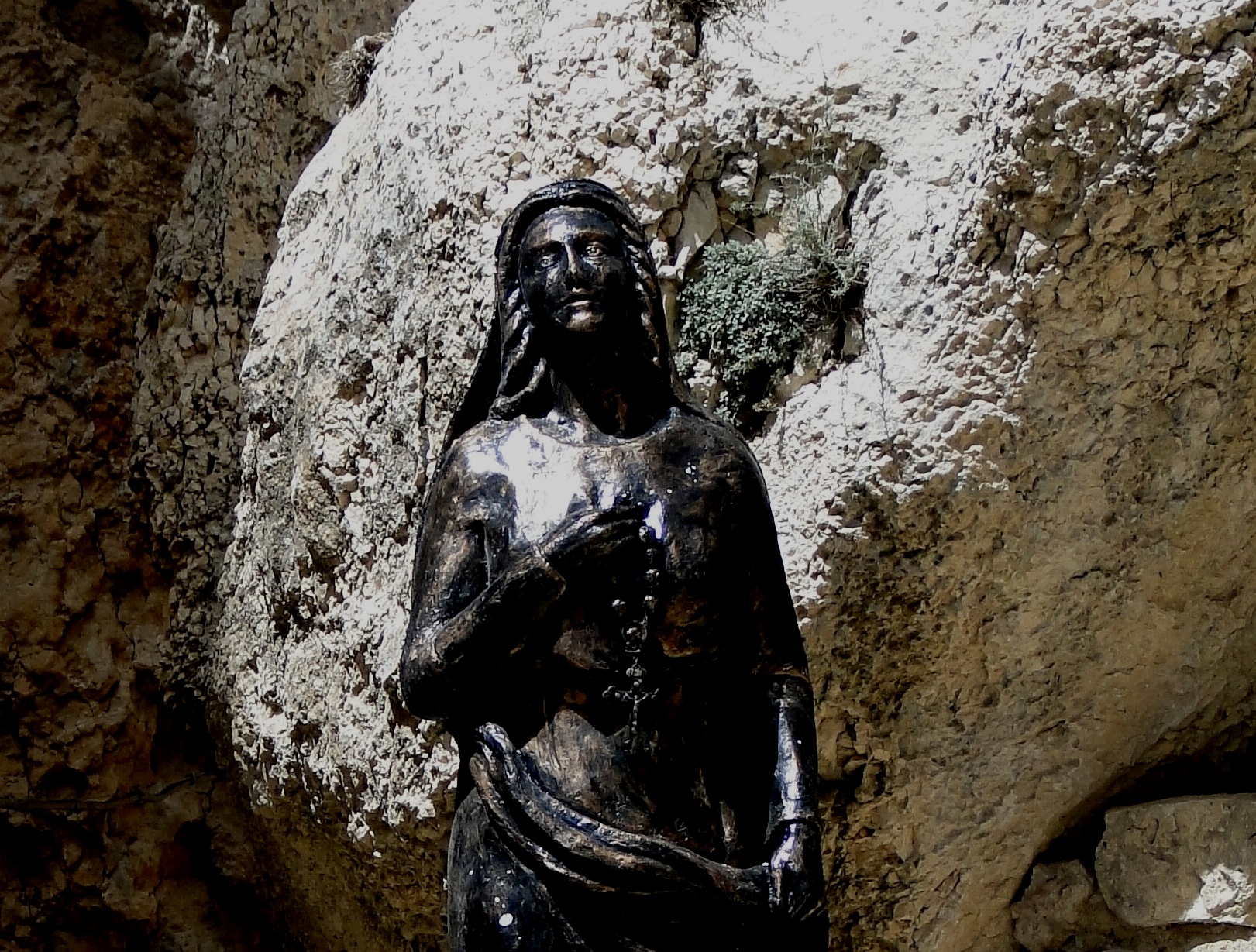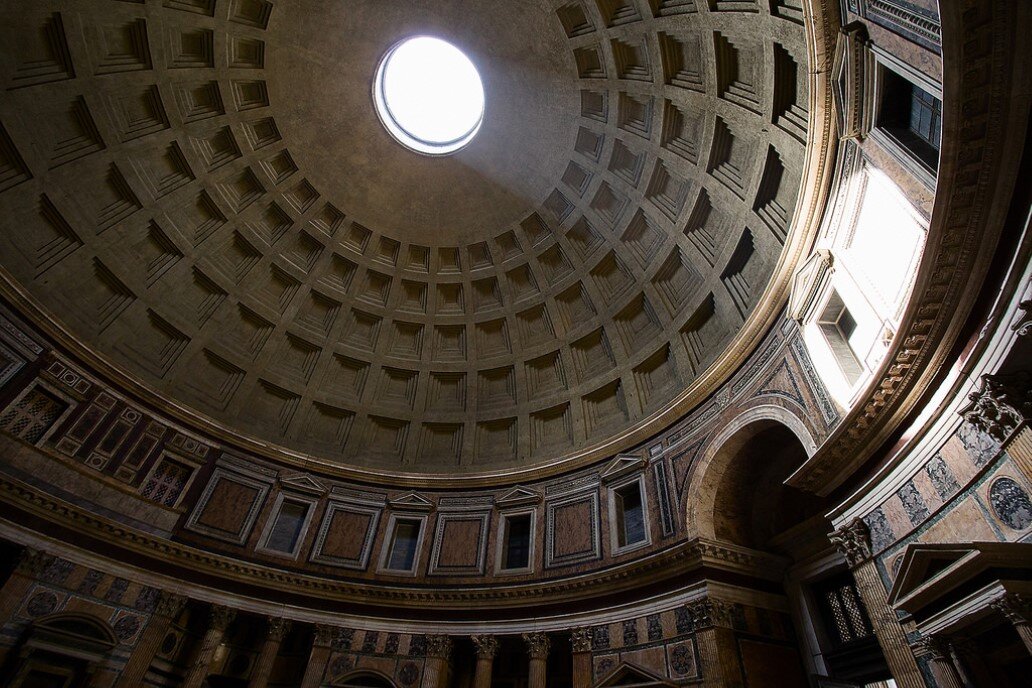Matthew
Bible Studies, Messages, Papers
Photograph: The stele (called "the Nestorian stele") testifies to a large Chinese Christian community connected to Syrian Christians further west. It provides a potential link to Christian activity even further east, involving The Gospel of Matthew. A copy of Matthew was found in Chinese script in Kyoto, Japan, in the Koryuji Buddhist Temple, which dates back to 818 AD. It was built on top of a Christian church building built in 603 AD, which had been ruined by a fire. The "Church of the East" holds that Christian faith reached Japan by 70 AD. Apparently, Syrian and/or Chinese Christian missionaries come to Japan with The Gospel of Matthew to spread the faith.
Below are messages, small group leader notes, and exegetical notes on The Gospel of Matthew. Our devotional reflections on Matthew’s Gospel, On the King’s Errand, are on our separate website.
Messages on the Gospel of Matthew
Matthew 1:1 - 17 Jesus Is Our Hope (Advent Week 1: Hope)
Matthew 2:1 - 11 Recognizing Who Jesus Is
Matthew 3:13 - 4:11 The Healing of Human Nature in Jesus A 30 minute video.
Matthew 3:13 - 4:11 The Spirit of Truth and Our Enemy, the Liar
Matthew 3:13 - 4:11 Jesus Frees Us from the Evil One
Matthew 3:13 - 4:11 Building Stamina in an Age of Shortcuts
Matthew 3:13 - 4:11 Building Generosity in an Age of Jealousy
Matthew 3:13 - 4:11 Building Identity in an Age of Multiple Identities. As part of this series on Building, Mako reflected on his mother’s passing in early October, interpreting her resistance to Jesus but small signs of a softening heart.
Matthew 5:33 - 37 From Flakiness to Integrity
Matthew 8:1 - 4 Spiritual Disciplines: Grieving and Celebrating
Matthew 8:1 - 4 How Jesus Heals, Part 1
Matthew 8:5 - 13 How Jesus Heals, Part 2
Matthew 8:14 - 17 How Jesus Authenticates Himself
Matthew 8:23 - 27 Crossing the Stormy Sea. Vimeo video recording of Mako Nagasawa speaking at Chinese Bible Church of Greater Boston in July 21, 2024, on Jesus bringing us across barriers like the Sea of Galilee to reach others, and accompanying us as we confront the storms. Soundcloud audio available here.
Matthew 8:18 - 34 Calming the Storm Within. Vimeo video recording of Mako Nagasawa speaking at Chinese Bible Church of Greater Boston in July 28, 2024, on Jesus confronting and healing the men possessed by the demons. Soundcloud audio available here.
Matthew 8:23 - 27 How to Read the Bible and Experience God In It
Matthew 9:18 - 26 How Jesus Heals Us from Shame
Matthew 13:31 - 33 The Kingdom You No Longer Like and slides
Matthew 13:44 - 46 Jesus’ Kingdom Is Worth Everything and slides
Matthew 15:21 - 28 Jesus Leads Us Far from Home
Matthew 17:1 - 8, 20 Moving Mountains. Vimeo video recording of Mako Nagasawa speaking at Newton Covenant Church in January 2023, on the theme of mountains not as obstacles but as places God was present in ancient Israel.
Matthew 18:21 - 35 The First Sign of a Fading Faith: Forgiveness
Matthew 21:1 - 17 When God Comes to Take Back What Is His A message for Palm Sunday; Jesus retells David’s story to express his claim on Jerusalem and the Jewish people.
Matthew 27:46 God Becomes the Hero: Psalm 22 and How Jesus Retold David’s Story. This is Session Eight from our 2019 conference, Healing Atonement. We made it public in June 2025 because our October 2025 conference, Constant Connection, will expand on the themes of why God does not separate Himself from us. On the cross, Jesus quoted Psalm 22:1, “My God, my God, why have you forsake me?” This “cry of dereliction” has long puzzled Christians. Advocates of penal substitutionary atonement claim that God the Father turned against or away from the Son in some real sense. But not only does this violate various Scriptures and theological convictions about the Father-Son union flowing from the Nicene Creed, there is a much better explanation, rooted in the pattern of Jesus retelling David’s story. Medical substitution stresses the active, not passive, obedience of Jesus, and God’s faithfulness to restore that which was broken, lost, and incomplete.
Matthew 28:16 - 20 The Church as Continuation of Jesus’ Mission
Matthew 28:16 - 20 Christian Spiritual Development Based on the Gospels: A Diagram Slides to a presentation
Small Group Leader Handbooks on the Gospel of Matthew
How to Move Mountains and Influence People: The Gospel of Matthew as Handbook for Jesus’ Mission and Ours, Part 1 (Mt.3 - 7)
Small Group Leader Notes on the Gospel of Matthew
Part One: Our Heart - Jesus’ Challenge to the Human Heart (Mt.1 - 7)
Matthew 3:1 - 12 What is Divine Fire? Purifying or Destroying?
Matthew 3:13 - 4:11 Jesus Retells Our Story
Matthew 3:13 - 4:11 Jesus Begins to Redeem Human Nature
Matthew 4:12 - 25 Jesus is Light in Darkness, Heaven on Earth
Matthew 5:1 - 12 Jesus' Process of Transformation
Matthew 5:1 - 16 Jesus' Vision for Influence
Matthew 5:21 - 26 Heart Transformation for Reconciliation
Matthew 5:21 - 26 A Practical Framework for Reconciliation
Matthew 5:27 - 32 Heart Transformation for Purity
Matthew 5:33 - 37 Heart Transformation for Integrity
Matthew 5:38 - 48 Heart Transformation for Loving the Opposition
Matthew 6:1 - 18 From Public Show to Deep Authenticity
Matthew 6:19 - 34 From Greed to Generosity
Matthew 7:1 - 6 From Judging to Healing
Matthew 7:7 - 29 From Self-Sufficiency to Dependence
Part TWO: Our Experience - the Power of Jesus’ Word (Mt.8 - 10)
Matthew 8:1 - 17 Jesus Heals by His Word
Matthew 8:18 - 34 Jesus Ejects Other Voices
Matthew 9:1 - 13 Jesus Raises People Up
Matthew 9:14 - 26 Jesus Heals Our Hidden Uncleanness
Matthew 9:35 - 10:22 Jesus Sends Us to Proclaim
Part Three: Our Stamina - Facing Rejection and Building Resolve (Mt.11 - 13)
Matthew 11:1 - 24 Why Rejecting Jesus Isn't Logical
Matthew 11:25 - 27 Jesus Reveals All of the Father
Matthew 11:28 - 12:21 Jesus Completes Us
Matthew 12:46 - 13:23 Growing the Kingdom: Why Rejection Happens
Matthew 13:24 - 43 Growing the Kingdom: Shallow Acceptance
Matthew 13:44 - 46 Growing the Kingdom: The Insider’s View
Matthew 12:46 - 13:58 Growing the Kingdom: Seven Kingdom Parables
Part Four: Our Skills - Multi-Ethnicity, Cross-Cultural Ministry (Mt.14 – 18)
Matthew 14:1 - 12 How Not to Respond to Jesus' Word
Matthew 14:13 - 33 Jesus' Lesson on Serving Strangers
Matthew 15:1 - 20 Jesus' Lesson on the Human Heart
Matthew 15:1 - 20 Where is the Evil? A Comparison
Matthew 15:1 - 28 Ministry at the Center and the Margins
Matthew 15:21 - 28 Jesus' Lesson on Crossing Cultures
Matthew 15:21 - 28 A Worksheet on Ethnicity, Culture, and Faith
Matthew 15:29 - 16:12 Jesus' Second Lesson on Serving Strangers
Matthew 16:13 - 28 Jesus' Lesson about Sacrifice
Matthew 16:13 - 17:13 How to See Jesus
Matthew 17:14 - 27 The Real Meaning of Moving Mountains
Matthew 18:1 - 18 Jesus' Lesson on Welcoming New Believers
Matthew 18:19 - 35 Jesus' Lesson on Forgiveness
Part Five: Our Courage - Confrontation and Conflict (Mt.19 - 25)
Matthew 19:3 - 12 Holding to Jesus' Vision for Sex and Marriage
Matthew 19:13 - 30 Holding to Jesus' Vision for Money
Matthew 20:1 - 28 Holding to Jesus' Vision for Greatness
Matthew 20:29 - 21:46 Jesus Enters as King and God Embodied
Matthew 22:1 - 14 Conflicting Kingdoms
Matthew 22:15 - 46 The Traps Set for Jesus
Matthew 23:1 - 39 Spiritualities in Conflict
Matthew 24:1 - 51 Jesus Was Here: The Sign
Matthew 25:1 - 46 Until the End of the Age: How to Invest Well
Matthew 25:1 - 30 Until the End of the Age: How to Invest Well
Matthew 25:31 - 44 Until the End of the Age: How Jesus Will Judge
Part Six: Our Mission - Remembrance and Reproduction (Mt.26 - 28)
Matthew 26:1 - 29 Remembering How Jesus Prepared to Die
Matthew 26:30 - 56 Remembering Jesus' Great Struggle
Matthew 26:57 - 75 Remembering the Trials of Jesus and Peter
Matthew 26:57 - 27:37 Remembering the Leadership of Jesus
Matthew 27:11 - 54 Remembering Jesus' Death
Matthew 27:55 - 28:15 Remembering Jesus' Resurrection
Matthew 28:16 - 20 Remembering Jesus' Mission and Ours
Notes and Essays on the Gospel of Matthew
In order of appearance in the Gospel of Matthew
The Chiastic Structure of Matthew's Gospel and Its Implications
An outline of the entire Gospel of Matthew according to its literary form: a chiasm. The significance of this structure draws our attention to points of symmetry as the story develops. The center of the chiasm is the seven parables of Matthew 13 explaining the kingdom of God.
Matthew's Use of Isaiah's Prophecy
Notes on how Matthew quotes from Isaiah.
Hell as Fire and Darkness: Remembrance of Sinai as Covenant Rejection in Matthew's Gospel
This is a long essay exploring how Jesus' use of the phrase "fire and darkness" is a motif that comes from the story of God at Mount Sinai, where Israel rejects the covenant, and resists being purified by God. “Fire” is an intertextual connection to the Old Testament appearances of God; the paper briefly explores virtually all the New Testament texts dealing with "fire" as a motif.
Did Matthew Get Jesus' Genealogy Wrong? An Analysis of Matthew 1:1 - 17
This essay compares Matthew’s genealogy to Luke’s, along with the one in the Book of Chronicles. Matthew is interested in portraying Jesus’ legal claim to the throne of David. His genealogy is a selective, concise narration that makes that argument.
What is Meekness and How Does It Relate to Inheriting the Land? A Short Exegesis of Matthew 5:6
A short paper written for Dr. Bruce Beck, at Holy Cross Greek Orthodox Seminary, for his class on the Gospel of Matthew. In modern English, to be “meek” means “non-defensive.”
Can We Make God's Name More Holy? A Short Exegesis of Matthew 6:9
A short paper written for Dr. Bruce Beck, at Holy Cross Greek Orthodox Seminary, for his class on the Gospel of Matthew. We can increase the perception or experience of God’s name. This question demonstrates why, of the Greek-English lexicons, Thayer is superior to Danker-Bauer because Thayer considers the Greek Septuagint translation of the Hebrew Scriptures.
Might God Really Lead Us Into Temptation? A Short Exegesis of Matthew 6:13
A short paper written for Dr. Bruce Beck, at Holy Cross Greek Orthodox Seminary, for his class on the Gospel of Matthew. Because the words for both “lead” and “temptation” have broad lexical range, it may be advisable to translate this phrase into modern English as, “Leave us not in temptation.” Of patristic commentators, Cyril of Jerusalem demonstrates this meaning, primarily by taking a canonical view including Psalm 66 and James 1.
Slides to a presentation Mako Nagasawa gave to a class at Gordon-Conwell Theological Seminary in February 2024. Here is the link to the Zoom recording of the lecture, and the Zoom password is #i^rZW9^. Here is the English text of the treatise, which Ambrose wrote in 389. Ambrose uses King Ahab as a case study of greed when he seized Naboth’s vineyard, in 1 Kings 21. This presentation relates to the Genesis creation story because Ambrose structures it around Genesis 1. He says that God gave all humans a shared dominion over the creation. In Christ, God gives us dominion, in principle, over sin. Covetousness, therefore, is a double problem. It interferes with the shared dominion over the creation, and it causes us to fail in exercising proper Christ-centered dominion over the sin in ourselves. Ambrose shows that Ahab became cruel, like the wild dogs that eventually fed off his dead, unburied body, as in 2 Peter 2:19 - 22. Ambrose also draws upon Matthew 6:19 - 24 because of how moths and rust share in our physical goods whereas God shares in the development of our moral goodness. Ambrose draws as well on Luke 12:13 - 34 because the greedy tear down barns/granaries and build bigger ones, finding more pleasure in the rising price of grain, not its widespread availability. A few slides refer to Ambrose’s understanding of the human being as a human becoming, Jesus’ work of atonement as a medical substitution healing human nature for us and inviting us to share in him, the pressing issue being human desires and not deservingness per se, and hell as the love of God but experienced by those who have become addicted to sin.
What Did the Suffering Servant Suffer? Isaiah 53 and Penal Substitution
Examines Matthew's use of Isaiah 53:4 in Matthew 8:17. Matthew sees the Suffering Servant as accomplishing healing from the sin-sickness, and links Jesus to the Suffering Servant Song of Isaiah in the context of Jesus healing others, not being punished.
Does Jesus Hide the Father from People? An Analysis of Matthew 11:25 - 30
An essay which started as a letter to a friend who argued from a Calvinist framework that Jesus “hides” the Father and “reveals” the Father to different audiences, reinforcing a “double predestination” idea.
The Return of God’s Cloud – To the “Wrong” Mountain? An Exegesis of Matthew 17:1 - 8
A paper written for Dr. Bruce Beck, at Holy Cross Greek Orthodox Seminary, for his class on the Gospel of Matthew.
Sin, Conflict Resolution, and the Role of Third Parties: An Examination of Matthew 18:15 - 17
An essay about how third parties to a conflict must be bound to Jesus’ vision of reconciliation and accountability.
Whose Family? Which Union? Reflections on Scripture, Human Sexuality and God's Purposes
A paper summarizing the five Letters to a Gay Friend. This is an exegetical and pastoral paper examining biblical passages that are important in the discussion about what God’s vision for human sexuality is: Genesis 1 - 2; Leviticus 18 and 20; Matthew 19 (and Mark 10); Romans 1; 1 Corinthians 6 - 7; 1 Timothy 1. Ultimately, we have to look at the the nature of human desire in general, as a gift from God to move us towards extending ourselves towards Him and others. However, we are called to submit our desires to Jesus, who demonstrated the normative human emotions and desires.
The Rich Young Ruler and the Creation Order: An Exegesis of Matthew 19:13 -30
An example of how Jesus’ ethic of wealth and generosity in Matthew 19:13 - 30 comes from the same source as his ethic of marriage and divorce in Matthew 19:3 - 12: God’s creation vision.
A paper written for Dr. Bruce Beck, at Holy Cross Greek Orthodox Seminary, for his class on the Gospel of Matthew. Establishes that Jesus and Matthew were using the distinction between parents and children from Exodus and Numbers, and applying it to the parents and children of Jesus’ day. This has significance for the accusation that Matthew is anti-Semitic. It also displays the restorative justice nature of the Sinai covenant: disobedient parents had to help undo the harm they did to their children’s faith.
Is God a Mad Dictator Who Kills His Own People? An Analysis of Matthew 22:1 - 14
Jesus’ parable of the wedding banquet raises troubling questions. Why would the first invitees kill the messengers? Why would the king slay the first invitees in response? How much agency do we ascribe to God for this?
Is Salvation by Social Justice? An Analysis of Matthew 25:31-46
At the end of this age, Jesus divides people into two categories, represented by sheep and goats, which look similar when they are young. Why does Jesus separate people? What makes “sheep” different from “goats,” exactly?
Did Matthew Misquote Zechariah by Saying Jeremiah in Matthew 27:9 - 10?
This essay is part of a letter from a skeptic, who argued that Matthew was being sloppy as he was looking for proof-texts for Jesus. In response, it is important to see an intertextual reference here, to Joseph from Genesis 37 - 50, Jeremiah’s potter imagery in Jeremiah 7 and 18 - 23, and Zechariah’s own use of both prior texts in Zechariah 9 - 14.
Jesus' Cry of Dereliction: Why the Father Did Not Turn Against or Away from the Son
These blog posts examine Jesus' quotation of Psalm 22:1, 'My God, my God, why have you forsaken me?' from the cross. Jesus does so to retell the story of King David in the wilderness, before his enthronement.
Other Resources on the Gospel of Matthew
In order of the date of publication
Robert Alter and Frank Kermode, The Literary Guide to the Bible. Harvard University Press | Amazon page, Sep 1, 1990. Very helpful insights into the Gospels.
Robert Tannehill, The Narrative Unity of Luke-Acts, Volumes 1 and 2. Fortress Press | Amazon page, Sep 1, 1991. Tannehill gives an excellent literary treatment of Luke that helps with all narrative, including Matthew.
N.T. Wright, The New Testament and the People of God. Fortress Press | Amazon page, Sep 1992. Wright has valuable historical context, and high level survey of Matthew.
Jerome H. Neyrey, Honor and Shame in the Gospel of Matthew. Westminster John Knox Press | Amazon page, Nov 1, 1998.
Warren Carter, Matthew and Empire. Trinity International Press | Amazon page, Oct 1, 2001.
Gary Tuck, Matthew 5:17: Jesus Did Come to Abolish the Law, and He Said So; see also Benjamin Corey, For The People Who Say, “But Jesus Didn’t Abolish The Law”. Patheos, Aug 7, 2015.
Tom Wright, Matthew for Everyone, Chapters 1 - 15. Westminster John Knox Press | Amazon page, Jan 1, 2004.
Tom Wright, Matthew for Everyone, Chapters 16 - 28. Westminster John Knox Press | Amazon page, Jan 1, 2004.
Warren Carter, Matthew: Storyteller, Interpreter, Evangelist. Baker Academic | Amazon page, Feb 1, 2004.
Matthew L. Skinner, The Trial Narratives: Conflict, Power, and Identity in the New Testament. Westminster John Knox Press | Amazon page, Feb 1, 2010)
Kathleen E. Corley, Maranatha: Women's Funerary Rituals and Christian Origins. Fortress Press | Amazon page, Apr 2010) studies funeral rites and customs in the ancient Roman world; she compares them to the Gospels’ accounts of the women at Jesus’ empty tomb announcing his resurrection, finding a new role for women mourners at the heart of Christian faith
Sigurd Grindheim, God's Equal: What Can We Know About Jesus' Self-Understanding? T&T Clark | Amazon page, 2011. Grindheim gives an outstanding exploration into the Synoptic Gospels.
David Instone-Brewer, Bible Scandals: Divorce. BeThinking, 2012. Very important considerations for marital abuse cases, touching on Matthew 19:3 - 12
Daniel Payne, Matthew's Gospel Offers an Amazing Case for Jesus' Resurrection. The Federalist, Apr 18, 2017.
Cathy Deddo, The Joy of Taking Jesus' Yoke. GCI Equipper, Jul 9, 2017. Cathy Deddo reflects on Matthew 11:28 - 30.
David Bentley Hart, A Prayer for the Poor. University of Notre Dame Church Life Journal, Jun 5, 2018. Hart examines the Lord’s Prayer, Matthew 6:9 - 13
Paul Pavao, Perpetual Sabbath: The Fulness of the Law. Word Warrior, Feb 27, 2019. Pavao translates “fulfilled the Law” as “extended the Law” in Matthew 5:17.
Kenneth L. Waters, Jesus in the Heart of the Earth: Deciphering the Jonah Saying (Matthew 12:39–41). Sage Journals, May 4, 2021. Jesus would be dead in Jerusalem, according to the saying.
Shaun C. Kennedy, Masoretic Matthew: Did Matthew Write in Hebrew or Greek? Bible Translation. Shaun C. Kennedy's Bible Translation Blog, April 9, 2022.
Jonathan Pageau, Transfiguration: The End of Symbolism - with Aidan Hart. Jonathan Pageau, Aug 3, 2023. A 53 minute video discussion. “This is a discussion from the Princeton Scala Foundation conference that took place in April 2023 with the title, “The Transfiguration: Glory and Grace in the World”. I sat down with Margarita Mooney Clayton and iconographer and author Aidan Hart to discuss the Transfiguration of Christ, how God's glory fills the world, and that the ultimate goal of the spiritual life is encountering God face to face.” See also Joe Rawls, Anthony Bloom on the Transfiguration. The Byzantine Anglo-Catholic, Aug 9, 2009. And for more sermons, reflections, and poetry on Jesus’ transfiguration, see Ora Et Labora, Resources on the Transfiguration. Ora Et Labora | Blogspot, Aug 19, 2008.
